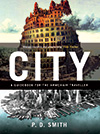Saying the world
Times Literary Supplement, January 12, 2001
Five Portraits: Modernity and the Imagination in Twentieth-Century German Writing, by Michael André Bernstein (Northwestern University Press), 150pp. ISBN 0-8101-1774-6
By PD Smith
It is always welcome to have a new book that reaches out beyond the academic field of German studies, and encourages a wider readership to engage with the work of German-language writers. Michael André Bernstein’s Five Portraits does just this. He chooses five writers, only two of whom — Martin Heidegger and Walter Benjamin — were actually German nationals. Robert Musil and Rainer Maria Rilke were born in what was then the Austro-Hungarian Empire and Paul Celan was Romanian.
As well as the German language, what unites these figures — a philosopher, a literary-cultural theorist, a novelist, and two poets — is their centrality to the modernist project. All strove to create what Bernstein rather grandiosely terms the “modernist masterpiece”, a single great work that was to be the summa and expression of both its creator-genius and the culture that nurtured it. Inspired by the examples of Balzac and Mallarmé, the modernist artefact became a God-like act of creation, an attempt to re-establish a lost ontological unity expressed in an Adamic language.
According to Bernstein, this impossible goal embodies three principals: the modernist masterpiece must be universal in its vision of human nature; it should be difficult, echoing Joyce’s remark (of Finnegans Wake) that “I’ve put in so many enigmas and puzzles that it will keep the professors busy for centuries arguing over what I meant”; and, finally, it must be redemptive, giving value to human existence in a secular, technologized culture. Of course, as with all taxonomies this fails to do justice to reality in all its nuanced complexity, and Bernstein’s brief introduction leaves one wishing for a fuller discussion of the theoretical issues. Nevertheless, these five essays (written originally for the New Republic) represent an admirable attempt to engage with the work of complex thinkers.
One of the themes that Bernstein explores most successfully is the “cult of inwardness” in the modern imagination. Rilke’s transmutation of reality into “eine Hand voll Innres” (a hand full of inwardness) is an attempt at “saying” the world that finds a parallel in Eliot’s lines from the Four Quartets: “the end of all our exploring / Will be to arrive where we started / And to know the place for the first time.”
Yet as Bernstein suggests, this poetic interiority, which promises the reader access to some higher order of reality, has its political correlative in the dictator: “What Hitler called the Führerprinzip, the right of the superior being to the unquestioning obedience of others, is dependent on a culturally shared mythologization of the genius’s unique insight, and its charismatic power is inextricably bound up with the history of modernism itself.” In his discussion of Musil’s great unfinished novel The Man Without Qualities, Bernstein detects “a sinister parody of Rilkean inwardness” in Moosbrugger, the psychopathic murderer. Moosbrugger’s inability to distinguish between self and world is pathological. But for Rilke this offers a source of visionary insight into the connectedness of inner and outer realities: “subjectivity became the greatest prize of his objectivity.”
The essay on Heidegger addresses the question as to whether it matters “what sort of man or woman produced the works that compel our attention”. Here Bernstein’s method of combining biographical, cultural and critical elements is particularly successful. He takes issue with Richard Rorty’s attempt to separate the Black Forest philosopher’s politics (“for a while at least, a convinced Nazi”) from his intellectual achievement. Bernstein rightly points out that Heidegger himself considered thinking to be not just “one academic discipline among many — it is ‘the basic occurrence of Dasein’ and as such is inseparable from the fundamental question of how to live”. His conclusion is that although nothing in the philosopher’s thought was derived from Nazism, there are many disturbing parallels. Here as elsewhere Bernstein’s analysis is concise yet penetrating, arguing that Heidegger’s search for a universal “primordial” language in touch with authentic Being was a deeply flawed “mixture of provincial pietism and preindustrial nostalgia”.
Celan’s extraordinary poem "Todesfuge" (Death Fugue), published just after the Second World War, brought to an end the modernist masterpiece’s claim to redeem the world. Bernstein explores the background to this seminal Shoah poem, arguing that: “Every line of ‘Death Fugue’ shows the dazzling technical and imaginative mastery of its author, and there is something unsettling about such sovereign control […] when the poem’s subject is the utter helplessness of the Shoah’s victims.” The fact that it is a supreme example of the modernist masterpiece makes it “morally inadmissible”. It marks a watershed after which postmodernism consciously subverts the modernist ideals of redemption and universality. With these aspirations, the faith in the visionary individual is also lost: the creator-genius is dead. After the concentration camps, writers and intellectuals can only offer, in Celan’s words, a “radiance that will not comfort”.
[nb. this may differ slightly from the published version]

